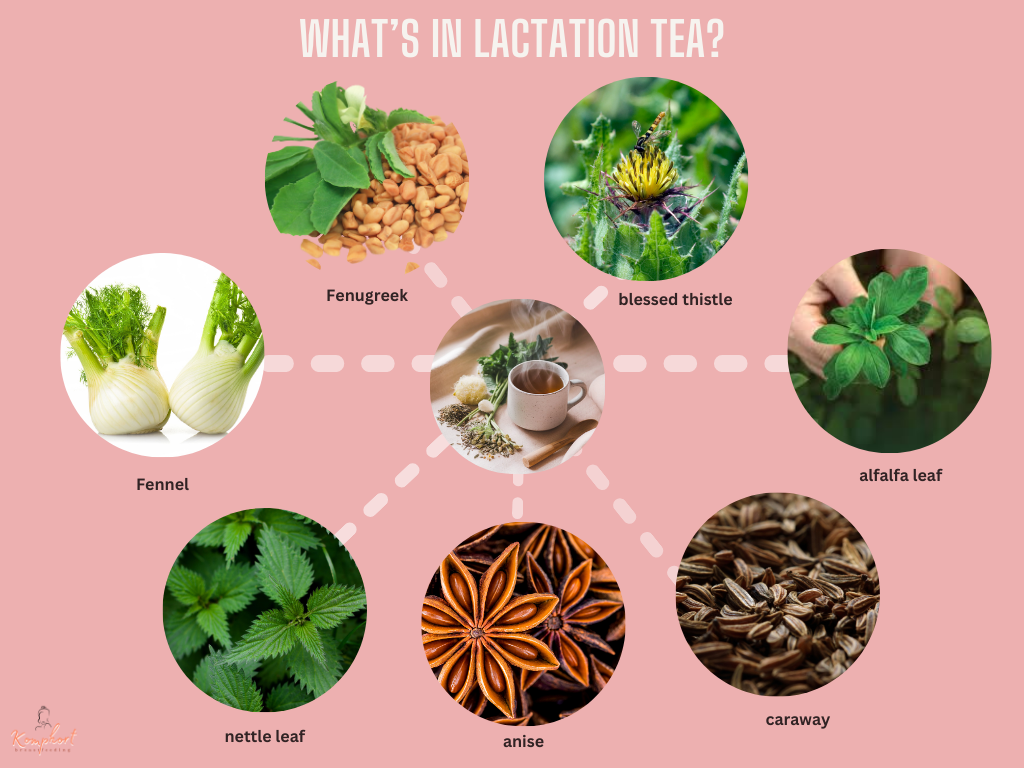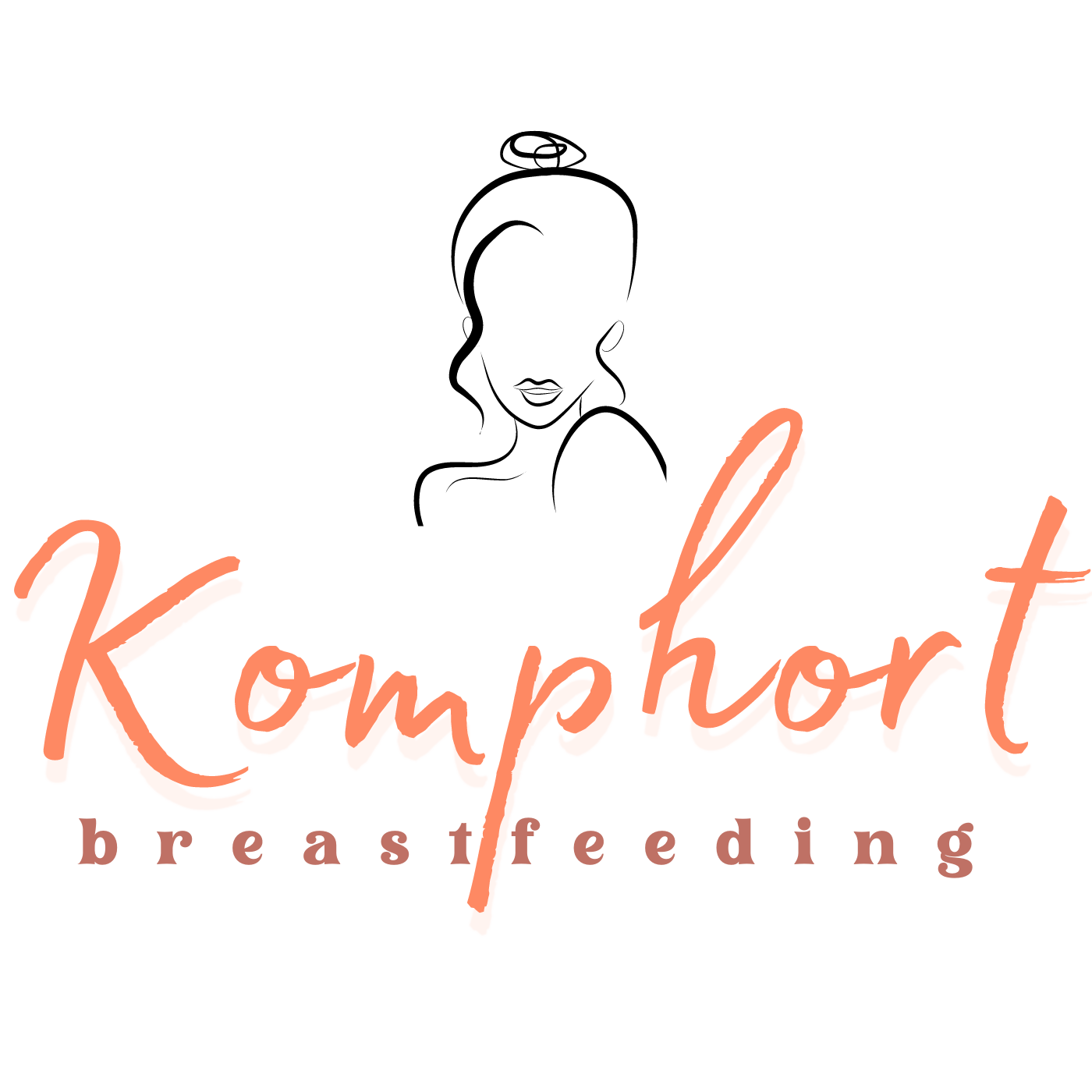Get ready to pour yourself a warm cup because we’re about to dive into something really exciting: lactation tea benefits!

As a breastfeeding specialist and a nurse, I get it. You’re juggling sleepless nights, endless diaper changes, and the ever-present question: “Is my baby getting enough milk?” It’s a lot! And in the midst of all this, you’re likely hearing about all sorts of things that can supposedly boost your milk supply. One of the most popular whispers in the mama circles? Lactation tea.
But what is lactation tea? Does it actually work? And more importantly, is it something that could be helpful (and maybe even enjoyable!) for you? Grab your favorite mug, maybe even brew yourself a cup of… well, you guessed it… tea, and let’s get to the bottom of these lactation tea benefits together!
What in the World is Lactation Tea, Anyway?

Okay, first things first, let’s demystify this magical brew. Lactation tea isn’t some ancient potion brewed under a full moon (though wouldn’t that be cool?). In reality, lactation tea is typically a blend of various herbs known for their galactagogue properties. “Gala-what-now?” Galactagogues, my friends, are substances that are believed to help promote lactation and increase milk production. Think of them as nature’s little helpers for breastfeeding mamas.
These herbs have been used for centuries across different cultures to support healthy breast milk production and promote lactation. And guess what? They often taste pretty good too! We’re not talking about choking down some bitter concoction here. Many lactation teas are actually quite delicious, making them a pleasant addition to your daily routine.
Common ingredients you might find in your lactation tea include:

- Fennel: This licorice-y-tasting herb is a superstar in the lactation world. There’s a long history of women claiming that they noticed a positive increase in their milk supply after using fennel (Foeniculum vulgare) reputedly stimulates mammary growth. Plus, some moms find it helps soothe a fussy baby (bonus points!).
- Fenugreek: Perhaps the most well-known galactagogue, fenugreek has a slight maple-syrup aroma and is frequently used in lactation support supplements and teas.
- Blessed Thistle: Often paired with fenugreek, blessed thistle is another herb traditionally used to help increase a mother’s milk supply.
- Alfalfa Leaf: Not just for horses! Alfalfa leaf supports breast milk supply and is packed with vitamins and minerals – a great all-around boost for mama and baby.
- Nettle Leaf: Nutrient-rich and gently supportive, nettle leaf also contributes to overall wellness and energy levels, which is always appreciated during those early months of motherhood.
- Anise: Similar to fennel in flavor, anise is another tasty galactagogue that contributes to the aromatic profile of many lactation teas.
- Caraway: Mild and slightly peppery, caraway seeds are yet another traditional remedy for boosting milk supply.
And this is just the tip of the iceberg! There are many other herbs that might pop up in your search for the perfect lactation tea, each with its own unique profile and potential benefits.
Sipping is Believing: What are the Real Lactation Tea Benefits?

Alright, let’s get to the good stuff – why are so many mamas reaching for a warm mug of lactation tea? Beyond the delicious taste and the comforting ritual of sipping something warm, what are the actual lactation tea benefits you might experience?
1. The Big One: Supporting Milk Supply
Let’s face it, for most of us turning to lactation tea, this is the primary goal. And while I always emphasize that tea isn’t a magic bullet (more on that later!), many moms do report feeling like lactation tea helps promote lactation promote milk production, and improve supply. The combination of galactagogue herbs working synergistically may indeed give your supply a gentle nudge in the right direction.
Think of it as adding a little extra fuel to your milk-making engine. If you are already breastfeeding frequently, ensuring good hydration, and eating well, lactation tea can be a lovely complementary approach to lactation support.
2. Hydration, Hydration, Hydration!
Breastfeeding is thirsty work! Staying well-hydrated is absolutely crucial for maintaining a good milk supply. Sometimes, in the whirlwind of caring for a baby, it’s easy to forget to drink enough water. Lactation tea offers a delicious and flavorful way to increase your fluid intake. It’s like hitting two birds with one stone – you’re getting potential galactagogue benefits and staying wonderfully hydrated. Many lactation teas are designed to be enjoyed throughout the day, making it easy to sip your way to better hydration. Consider it part of your actions for self-care!
3. A Moment of Calm in the Chaos
Let’s be honest, early motherhood can feel like delightful chaos. Finding a moment of peace can feel like winning the lottery. The simple act of brewing a cup of tea, inhaling the soothing aroma, and taking a few minutes to yourself can be incredibly grounding. Many herbs used in lactation tea, like chamomile or lemon balm (sometimes included in blends), also have calming properties. So, while you’re potentially boosting your milk supply, you might also be gifting yourself a mini spa moment in your day. And a calmer mama is often a happier mama (and baby!).
4. Nutrient Boost for You and Baby
Many of the herbs in lactation tea, like nettle and alfalfa, are packed with vitamins and minerals. When you consume these herbs, you’re not only potentially supporting your milk supply, but also nourishing your body with beneficial nutrients. These nutrients can then be passed on to your baby through your breast milk. It’s a win-win situation! You’re taking care of yourself while simultaneously enriching your breast milk for your little one.
5. Supports Postpartum Recovery (Sometimes!)
Some lactation tea blends include herbs that are traditionally used to supports uterine health and postpartum recovery. For example, raspberry leaf is often included in postpartum and lactation blends and is believed to tone the uterus after delivery. While more research is needed in this area, the potential for added postpartum support is definitely a benefit worth considering. It’s like your tea is giving you a gentle hug from the inside out as you navigate the postpartum period.
Setting Realistic Expectations: Lactation Tea is a Supporter, Not a Superhero

Okay, let’s have a real talk moment. While lactation tea can be a wonderful tool in your breastfeeding journey, it’s crucial to have realistic expectations. Lactation tea is not a magical solution that will instantly solve all milk supply issues. It’s a supporter, not a superhero.
If you are experiencing persistent concerns about your milk supply, it’s always best to reach out to a medical professional or a certified lactation consultant. They can help you identify the underlying cause of any supply issues and create a comprehensive plan tailored to your specific needs. Things like latch issues, infrequent breastfeeding or pumping, and certain medical conditions can impact milk supply and may require different approaches.
Think of lactation tea as one piece of the puzzle – a helpful and enjoyable piece, but still just one piece. It works best when combined with other milk-boosting strategies, like:
- Frequent and Effective Breastfeeding or Pumping: This is the number one way to signal your body to make more milk! Baby’s demand drives your supply.
- Ensuring a Good Latch: A deep, comfortable latch ensures baby is efficiently removing milk, which is key for stimulating milk production.
- Staying Hydrated: We talked about this! Water is essential for milk production.
- Eating a Nutritious Diet: Fuel your body well so it can fuel your baby well!
- Getting Enough Rest (as much as possible!): Easier said than done with a newborn, but rest is vital for overall health and milk supply.
- Minimizing Stress: Stress can sometimes impact milk supply. Find healthy ways to manage stress and prioritize self-care (remember that calming cup of tea?).
So, when you incorporate lactation tea into your routine, think of it as a lovely addition to these foundational breastfeeding practices, rather than a stand-alone fix.
Navigating the Tea Aisle: Choosing the Right Lactation Tea for You

Ready to dive into the world of lactation tea? Awesome! But with so many options on the market, how do you choose the right one? Here are a few tips to guide your search:
1. Read the Ingredients List
Take a peek at what’s actually in the tea. Look for blends that contain those well-known galactagogue herbs we discussed, like fennel, fenugreek, blessed thistle, alfalfa, nettle, and anise. Pay attention to the quantity of each herb as well – a blend that lists these herbs high up on the ingredient list is likely to be more potent.
2. Organic is Often the Best
Whenever possible, opt for organic lactation tea. This ensures you are avoiding pesticides and other unwanted chemicals, which is especially important when you are breastfeeding your baby. Look for the organic label on the packaging to ensure you’re making a good choice.
3. Consider Your Taste Preferences
You’re more likely to consistently drink something you actually enjoy! Lactation teas come in a variety of flavors, depending on the herbs included. If you love licorice, a fennel-heavy blend might be perfect. If you prefer something milder, look for blends with nettle or alfalfa as base ingredients. Don’t be afraid to experiment to find a flavor you love. Reading read reviews online can sometimes give you a sense of the flavor profile before you buy.
4. Tea Bags vs. Loose Leaf
Lactation tea is available in both tea bags and loose leaf form. Tea bags are super convenient for quick brewing, especially when you are sleep-deprived and juggling a baby. Loose leaf tea often offers a richer flavor and can sometimes be more economical in the long run. It’s really a matter of personal preference and lifestyle. If you’re always on the go, tea bags might be your best friend. If you enjoy a more mindful tea ritual, loose leaf could be your jam.
5. Check for Potential Allergens
If you have any known allergies, especially to plants in the Asteraceae family (like ragweed, chamomile, or echinacea) or Apiaceae family (like fennel, anise, caraway), be sure to carefully read the ingredient list of your lactation tea. While allergic reactions are not common, it’s always wise to be cautious, especially when introducing new herbs into your diet while breastfeeding.
6. Price Point and Value
Lactation teas vary in price. Consider the price per serving when comparing different brands. Sometimes buying in larger quantities or opting for loose leaf tea can be more cost-effective. Keep an eye out for sales and promotions too! You can often shop for lactation tea online or at natural food stores. You can likely find options that fit your budget.
Brewing Up Success: How to Use Lactation Tea

Okay, you’ve chosen your lactation tea – fantastic! Now, how do you actually use it to potentially reap those lactation tea benefits? Here are a few tips for brewing and enjoying your lactation tea:
1. Follow Package Instructions (Usually!)
Mostlactation tea brands will provide brewing instructions on the packaging. Generally, this involves steeping a tea bag or a spoonful of loose leaf tea in hot water for 5-10 minutes. Following these instructions is usually a good starting point.
2. Experiment with Steep Time
Depending on your taste preference and the strength of the tea, you can experiment with steep time. Longer steep times will generally result in a stronger flavor and potentially a more potent brew. Start with the recommended steep time and adjust to your liking.
3. Enjoy it Warm or Iced
Lactation tea can be enjoyed warm or iced! Warm tea is especially comforting in cooler weather or when you are seeking a calming ritual. Iced lactation tea can be refreshing and hydrating in warmer months. Experiment and see what you prefer. You can even add a slice of lemon or a touch of honey if you like (just be mindful of added sugar).
4. Consistency is Key
Like many herbal remedies, consistency is often key to experiencing potential benefits. Aim to drink lactation tea regularly, perhaps 2-3 cups per day, to see if it makes a difference for you. It’s not a one-and-done kind of thing. Think of it as a daily ritual of self-care and lactation support.
5. Timing it Right (Maybe)
Some moms find it helpful to drink lactation tea about 30 minutes to an hour before breastfeeding or pumping. The idea is that the herbs may be more readily available in your system around the time your baby is nursing or you are pumping, potentially optimizing milk removal and stimulation. However, this is anecdotal, and there’s no hard and fast rule. Experiment and see if timing makes a difference for you.
6. Listen to Your Body
Pay attention to how you feel after drinking lactation tea. Do you feel any different in terms of milk supply? Do you enjoy the taste? Are you experiencing any digestive upset or other side effects? (Side effects are rare, but it’s always wise to be mindful). Your body is your best guide!
Read more: Yummy Mummy: How Diet Affects Breastmilk
Safety First: Precautions and Considerations

While lactation tea is generally considered safe for breastfeeding moms, there are a few precautions and considerations to keep in mind:
1. Start Slowly and Observe
When you first introduce lactation tea into your routine, start with a small amount (perhaps one cup a day) and observe how you and your baby react. This is especially important if you have any known allergies or sensitivities.
2. Fenugreek Cautions (Sometimes!)
Fenugreek, while a popular galactagogue, can sometimes cause digestive upset in some moms or babies. Some moms also report that fenugreek can sometimes have a slightly negative impact on milk supply for some individuals (it’s not common, but worth noting). If you notice any digestive issues in yourself or your baby, or if you suspect fenugreek might be decreasing your supply, try a tea blend without fenugreek. Also, fenugreek should be avoided by pregnant women and individuals with peanut or chickpea allergies.
3. Consult Your Medical Provider (If Needed)
If you have any underlying medical conditions, are taking any medications, or have concerns about lactation tea safety for you or your baby, it’s always wise to consult with your medical provider or a certified lactation consultant before incorporating lactation tea into your routine. This is especially important if you have a history of hormone-sensitive conditions, as some galactagogue herbs can have mild hormonal effects.
4. Moderation is Key
While lactation tea can be beneficial, more is not always better. Stick to the recommended serving size on the packaging and avoid excessive consumption. Drinking excessive amounts of any herbal tea could potentially lead to unwanted side effects. Enjoy it in moderation as part of a balanced approach to breastfeeding and self-care.
5. Not a Substitute for Medical Advice
Remember, lactation tea is a complementary approach, not a substitute for medical advice or treatment. If you are experiencing persistent milk supply issues, pain, infection, or other breastfeeding concerns, seek guidance from a qualified healthcare professional.
Read more: Does Lactation Tea Really Help Milk Supply?
The Bottom Line: Could Lactation Tea Benefit You?

From potentially supporting milk supply and boosting hydration to offering a moment of calm and providing nutrients, lactation tea can be a lovely addition to your breastfeeding journey.
Is it a magic bullet? No. But is it a potentially helpful, enjoyable, and comforting tool in your breastfeeding pack? Absolutely! When combined with good breastfeeding practices, a healthy lifestyle, and realistic expectations, lactation tea might just be the warm, soothing support you’ve been searching for.
If you’re curious about trying lactation tea, I encourage you to do your research, choose an organic blend that appeals to you, and see if it makes a positive difference in your breastfeeding experience. Think of it as a little gift to yourself – a moment of self-care in a mug, with potential benefits for both you and your baby.
Happy sipping, mamas! And remember, you are doing an amazing job, no matter how you choose to nourish your little one.
Eager for More Parenting Wisdom?

Breastfeeding is a journey, and I’m here to support you every step of the way. If you’re looking for even more practical advice, real-life tips, and encouragement, be sure to check out my YouTube channel!
Whether you’re tackling common breastfeeding challenges or just need a confidence boost, you’ll find a wealth of resources to help you thrive on this amazing journey. Click here.








